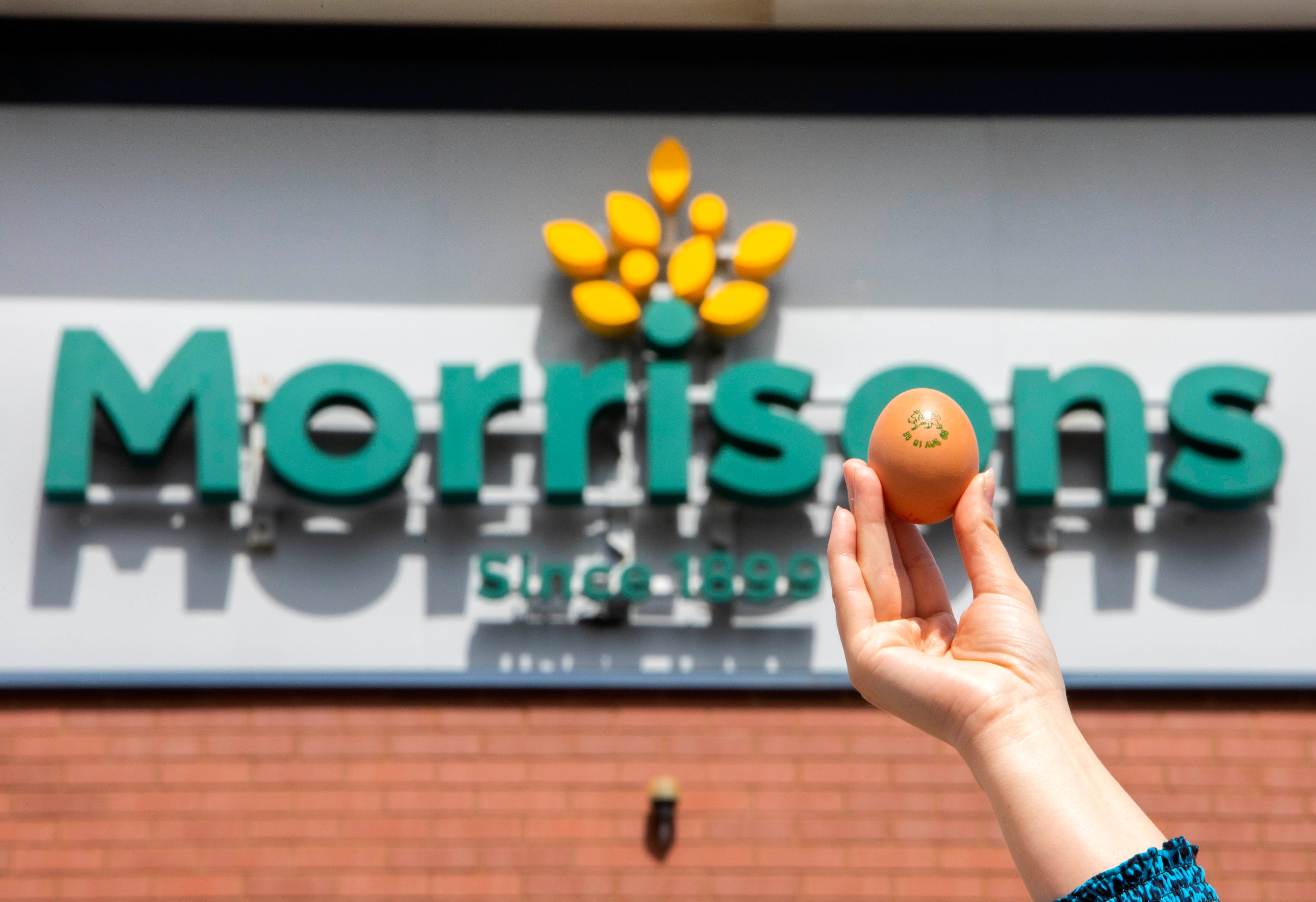Morrisons launches ‘planet friendly’ eggs from hens fed on insects
Launch comes amid major concern over pollution from chicken farms in Britain

Your support helps us to tell the story
From reproductive rights to climate change to Big Tech, The Independent is on the ground when the story is developing. Whether it's investigating the financials of Elon Musk's pro-Trump PAC or producing our latest documentary, 'The A Word', which shines a light on the American women fighting for reproductive rights, we know how important it is to parse out the facts from the messaging.
At such a critical moment in US history, we need reporters on the ground. Your donation allows us to keep sending journalists to speak to both sides of the story.
The Independent is trusted by Americans across the entire political spectrum. And unlike many other quality news outlets, we choose not to lock Americans out of our reporting and analysis with paywalls. We believe quality journalism should be available to everyone, paid for by those who can afford it.
Your support makes all the difference.Morrisons has launched a new line of eggs from hens fed on insects and food waste, as the retailer aims to be directly supplied by net-zero emission farms by 2030.
The so-called "planet-friendly" eggs are the first product in the supermarket’s eight-year drive to net zero, with Morrisons claiming the eggs are "carbon neutral".
A key element of the planet-friendly egg production method is that the hens are fed a soya-free diet, and are instead fed on food waste from Morrisons’ bakery, fruit and vegetable sites, and this is supplemented with insects from an insect "mini farm" container made by UK company Better Origin, which is installed on the farm.
Better Origin claims it can produce "carbon-negative animal feed", using up food waste, reducing the use of soya and decarbonising food production.
Of all the world’s farmed land, around 80 per cent of it is for livestock or growing crops to feed livestock. As a result, the consumption of animal products takes a heavy environmental toll.
Soya, a key livestock feed, is associated with environmental damage, particularly where it is grown in vast plantations in places such as Brazil, where global demand has contributed to clearing rainforests, and transport and shipping around the world creates further pollution.
Morrisons has reassured customers that insects are a natural part of chickens’ diets and have no negative impact on the quality, shelf life or taste of the eggs.
It also said the farm where the eggs are coming from has a large wind turbine, solar panels and a programme to offset remaining emissions, with a fifth of its land planted with trees.
A report by Cambridge University, which looks at the production of the eggs, including the insect growing unit, food waste transport, sourcing of locally grown grain and hen housing and care, found they are carbon neutral.
Though the change to the birds’ diet will reduce their impact on the environment, there remain major concerns about chicken farming in the UK, due to the increasing pollution of water courses by phosphate-rich chicken manure.
Chicken excrement, which is frequently spread onto farmland as a fertiliser, washes into streams and rivers, where the phosphates trigger toxic algal-blooms. This has impacted rivers, such as the Wye on the border of England and Wales, where around 20 million chickens are farmed. The river is now in "a critical state", according to Environment Agency experts.
Morrisons said the new eggs will be the first to feature the British Lion Egg green stamp to indicate the lower environmental impact to customers.
Sophie Throup, head of agriculture at Morrisons, said: "This is our first carbon-neutral product and there will be many more to come. It’s all part of our drive to be directly supplied only by ‘zero emission’ British farms by 2030.
"We know our customers consider the environmental impact of the food they eat and want affordable zero-emission produce."
Ian Bamford, commercial director of the Centre for Industrial Sustainability at the University of Cambridge, said: "We were very pleased to have the opportunity to review and analyse the approach that Morrisons has taken to calculating the carbon impact of several of their egg producers.
"It was clear that the mitigation actions that had been put in place by the first farm to produce carbon-neutral eggs enabled them to meet that goal."
The free-range eggs will first be available in 50 Yorkshire stores, and Morrisons’ new lower environmental impact store in Little Clacton, Essex, with a national rollout planned for 2023. They cost 30p each or £1.50 for a pack of six.
Morrisons also said it was aiming to sell more sustainable beef, lamb, fruit and vegetables from net zero carbon farms.
Additional reporting by PA



Join our commenting forum
Join thought-provoking conversations, follow other Independent readers and see their replies
Comments